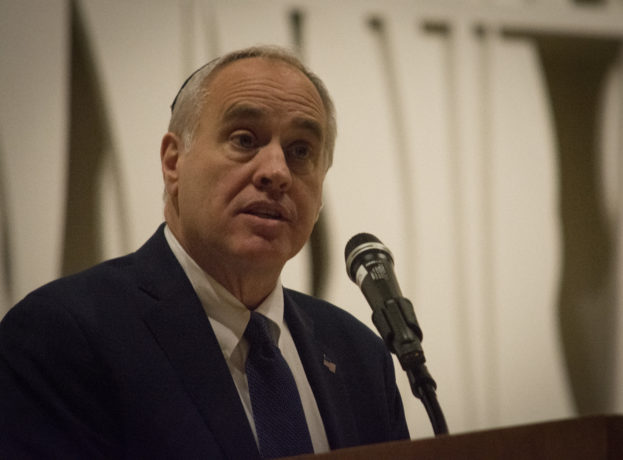A state comptroller’s audit released Monday found errors that contributed to delays and higher costs at six New York City Transit projects.
“The audit found numerous problems in the MTA’s capital projects pipeline that led to delays and cost overruns,” State Comptroller Thomas P. DiNapoli said. “These are red flags that fall within the MTA’s power to fix.”
The 2015-19 Metropolitan Transportation Authority Capital Program is the latest approved capital program, which started with a budget of $29.57 billion. After additions, the report said, the program’s budget increased to $33.27 billion. DiNapoli’s auditors examined six New York City Transit projects with a collective budget of $815.7 million.
DiNapoli’s report said auditors found that four of the six projects ran into design-related issues during construction, leading to delays and additional costs. For example, during an accessibility project to install elevators and make a platform comply with the Americans with Disabilities Act, Transit’s design neglected to raise the platform edge for passengers using wheelchairs. The mistake was discovered during construction, resulting in 10 additional work orders and $617,000 in added costs.
The audit said that contractors did not always follow project requirements. It was also found that four of the six projects were understaffed, with scheduled workers not always being present. The report also showed that in some cases these workers were still paid. DiNapoli’s office also reported that Transit had to issue various reminders to one of the projects to increase technical staffing to meet deadlines.
As a result of these “deficiencies,” DiNapoli’s audit reported that all six projects fell behind their original schedules, with four being over budget at a combined cost of $43.2 million.
DiNapoli’s audit included a list of recommendations for the New York City Transit to follow. They included assessing damages when contractors design projects that omit critical components resulting in additional costs or time for project completion. DiNapoli’s audit also recommends that MTA officials determine the root cause of design errors or omissions and develop plans to prevent them from reoccurring.
The audit recommends that construction managers verify the number and title of employees on site on a daily basis, determine whether they are authorized to be on site and document the results. The audit also recommends that construction managers document specific “lessons learned” in any additional work orders.
Included with DiNapoli’s report publication was a May 9 response to the audit’s findings from Andy Byford, president of New York City Transit. DiNapoli’s report noted that MTA officials “generally disagreed” with the audit findings. In his response letter, Byford wrote, “Many of the issues cited in the audit are not unusual in large, multi-year construction projects.”
He continued, “We do, however, recognize that policy reinstruction will reinforce agency best practices, and as noted in the recommendations, we will take such actions.”
In regard to construction delays, Byford said that schedules from the project’s master plan are “very preliminary,” and are often redefined as planning and information are developed. Byford said that all six projects were awarded as bid contracts and that inflation would not increase the cost of the contracts.
“All projects were designed inhouse,” Byford said. Byford said that costs due to design errors and omissions amounted to 0.35 percent of the six projects’ collective budgets.
In response to understaffing, Byford wrote, “NYCTA contracts do not specify the number of workers who should be on the site each day.” They are not necessarily skipping work if they’re not on-site, Byford said. Contractor personnel, Byford said, are responsible for nonconstruction related duties, such as testing equipment and materials off site. Byford’s letter also notes that contractors are already responsible for “daily reports” citing where all personnel are located, including off-site related tests.
Byford’s letter said that work orders already include “lessons learned” for additional work orders.
The MTA now has 90 days from July 29 to report to Gov. Andrew Cuomo, DiNapoli and state legislators, and say what recommendations they have implemented and which ones they have not.



